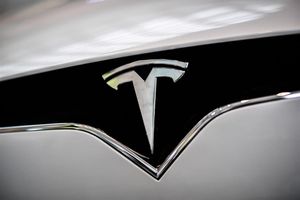LOS ANGELES, May 18, 2023 (GLOBE NEWSWIRE) -- U.S. orbital logistics and space mining company TransAstra Corporation announced today that the U.S. Space Force has awarded it a Phase One Small Business Innovation Research (SBIR) contract to explore new applications for the company’s patented, propellant-agnostic Omnivore™ thruster. The groundbreaking propulsion technology provides thrust typically six times faster and eight times cheaper than electric systems, and enables vehicles to carry payloads several times larger than those using chemical rocket thrusters. This capability opens up the opportunity for greater access to space and to accelerate space business ecosystem development. The contract will fund exploration of the propulsion system’s product-market fit for a range of government and commercial customers. This is the company's first SBIR award specifically for Omnivore™ and follows several million dollars of prior funding, including SBIR/STTR awards from the Department of Defense and the National Aeronautics and Space Administration (NASA).
The Omnivore™ thruster uses solar reflectors to focus highly concentrated sunlight onto a solar absorber located inside the thruster. The absorber in-turn superheats the propellant, so that it can expand and accelerate in the rocket’s nozzle providing the safest and most efficient thrust available on the market.
"This contract reinforces the value of TransAstra’s breakthrough technology and underscores how Omnivore™ will enable critical missions for NASA, the Department of Defense, and the private sector,” said Dr. Joel Sercel, TransAstra CEO. “This is because Omnivore™ is significantly faster and less expensive than electric propulsion and can use ordinary tap water or many other safe, non-toxic fluids as propellant. These factors make Omnivore™ the cleanest, safest, and most affordable propulsion system available or in development.”
The Omnivore™ thruster is designed to propel the company’s Worker Bee space tugs. Because of the thruster’s capabilities, Worker Bee tugs can deploy full satellite constellations in days instead of the months required by other systems.
“Partly because Omnivore™ is less massive at launch than chemical systems, it provides more affordable access to final destinations such as geostationary and cislunar orbits,” Dr. Sercel noted. “This contract opens the doors to understanding how the system can be used and optimized across the space ecosystem. It offers reduced reliance on large-rocket rideshares and unleashes the opportunity for our private and government customers to facilitate their own launches faster and more economically, which translates into accelerated revenue generation.”
TransAstra conducts research on Omnivore™ at their state-of-the-art laboratory in Los Angeles which houses two large vacuum chambers for solar powered rocket testing. The company has completed successful tests on the propulsion system at the facility using a variety of propellants.
TransAstra calculates that when Omnivore operates using liquid hydrogen propellant it will perform similarly to nuclear rockets, but without nuclear materials, costs, or risk. TransAstra performed Omnivore™'s early development under NASA NIAC funding and is now readying the technology for flight demonstration and mission applications.
About TransAstra
Founded in California in 2015, TransAstra (TransAstra.com) has developed revolutionary orbital logistics and space mining technology and is advancing the industrialization and settlement of space through the sustainable and ethical development of dual-use space technologies powered by the resources of space and the energy of the sun. The 2021 Y-Combinator alum, headquartered in Los Angeles, has an unparalleled intellectual property portfolio with 8 patents issued and has more than 12 additional patents expected this year.

Media contact: Meredith Schweitzer 347-698-9196 / mschweitzer@66and.co





